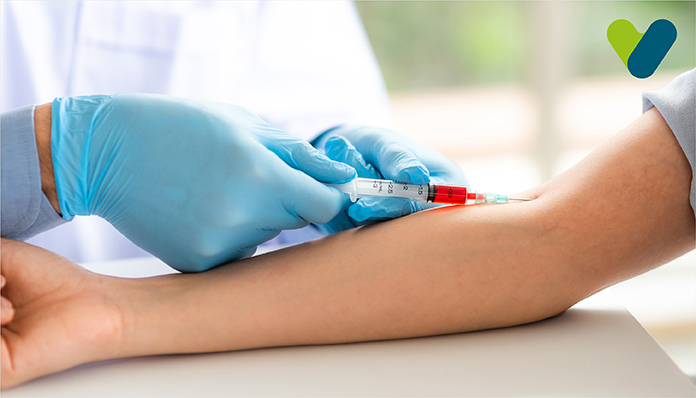An annual health checkup is a must because it helps to spot any signs of upcoming health issues or even existing (perhaps nascent) health issues that haven't manifested just yet. This type of testing - where you are undergoing tests without any symptomatic indications of ill-health is what we call a preventive health checkup. In most cases, your full body checkup will comprise a battery of the same blood tests.
These full body checkups as well as blood tests, as part of a regular medical checkup are a good idea in your 40s, are extremely necessary in your 50s and are pretty much non-negotiable once you cross 60 years of age.
Whether you are playing caregiver for your aged parents or are looking to perform due diligence towards the health of you and your spouse, here are 8 vital annual blood test and check up tests that you must put in the list
1. CBC
You would have definitely had this test several times in your lifetime already. In fact you might remember some of the items that you normally see in this test result, such as red blood cells, white blood cells, platelets, hemoglobin and hematocrit.This test is often asked for, in order to determine the presence of simple deficiencies like iron, B12, and B6 deficiency.
However it is also essential to screen patients for moderately serious matters like infection and inflammation or far more serious issues like heart disease and cancer.
2. Metabolic panel
There are two types - basic metabolic panel and complete metabolic panel.The basic metabolic panel test evaluates the levels of various compounds in the blood. It is very commonly ordered when a patient is suspected as being potentially diabetic. The patient is required to fast for the basic metabolic panel test, also known as BMP.
It checks for:
- Calcium
- Carbon dioxide
- Chloride
- Creatinine
- BUN, that is blood urea nitrogen
- Electrolytes
- Glucose (hence its use in diabetes screening)
- Potassium
- Sodium
The complete metabolic panel test, also known as CMP, includes the BMP checks and also checks levels of
- Albumin
- Alkaline phosphatase (ALP)
- Alanine aminotransferase (ALT)
- Aspartate aminotransferase (AST)
- Bilirubin
- Total protein
3. Enzyme panel
Enzyme levels are amazing indicators of the health of vital organs like your brain and heart and that's why an enzyme panel - or enzyme markers - are an extremely important test in a full body checkup.The enzyme marker test checks for CPK (Creatine phosphokinase) 1, 2 and 3 and another enzyme known as Troponin.
Spiked levels of CPK 1 could mean brain injuries or even cancer. Meanwhile higher than normal levels CPK 2 and Troponin could be symptoms of a heart attack, heart injury or inflammation. CPK 3 is a telltale sign of overexertion or inflamed muscle tissue.
4. Lipid profile
This is a cholesterol test. For this test - just like the metabolic tests, one needs to fat for 8 hours.The test checks for HDL and LDL, known to us as good cholesterol and bad cholesterol. As some of you may already know, good cholesterol enables the removal of harmful substances from your blood by enabling the liver to break them down into waste. Bad cholesterol causes thickening and hardening of arteries which in turn increases one's risk of having a heart attack.
Typically you want low levels of LDL and high levels of HDL.
5. Thyroid function
This type of test tells your medical professional how your body's hormone regulation is progressing because that is the job of the thyroid gland. Your mood, metabolism, heart rate, body temperature - and a whole lot of other factors - are governed by this gland. Both hyperthyroidism and hypothyroidism are problematic.6. Coagulation test
Blood needs to have the ability to clot if your wounds are to heal. But over clotting or clotting in the wrong places - like in a vein - can be pretty much fatal.Abnormal blood clotting can be symptomatic of something as simple as a vitamin K deficiency or it can be an omen of liver disease or potential leukemia.
7. DHEA levels test
This is used to check for Polycystic Ovarian Syndrome in women - which shows up as high DHEA levels - but is also used for several other reasons. For example low DHEA levels in men can be indicative of kidney disease.High levels of DHEA could be a sign of abnormal growths in the adrenal glands.
8. CRP test
The C-reactive protein test is the little black dress of health checkup tests because of how versatile it is. It is used to find out if the patient has any of the following conditions- Irritable bowel syndrome
- Inflammation of arteries
- Heart health issues
- Rheumatoid arthritis
- Some sort of infection
- Lupus
- Any sort of cancer


